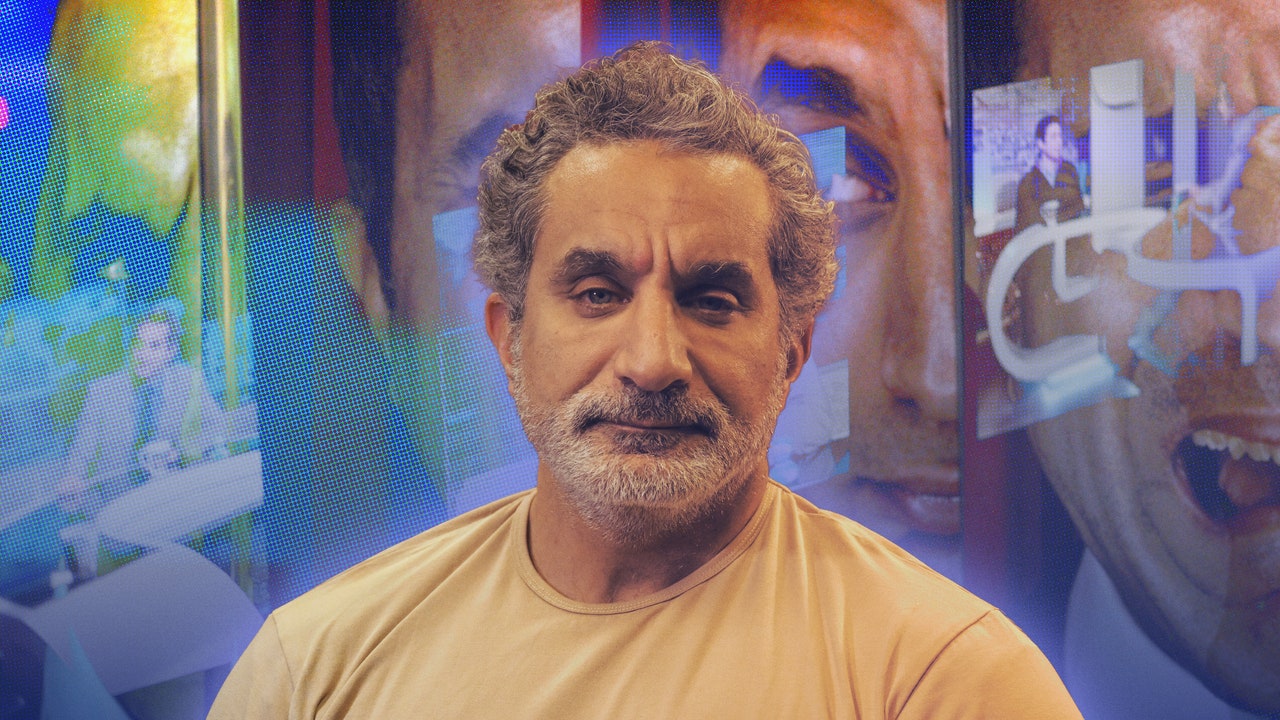Are you funnier in one more than the other?
I have my moments in both, but Arabic comes to me faster.
Why do you think your two guest appearances on Piers Morgan Uncensored following October 7th went so viral?
Because there’s a total disconnect between the people, the media and political leaders. When people listen to someone who resonates with what they think, when we go through a media that is completely biased against them, of course it resonates with them. It was a great opportunity to tell the other side of the story. People felt relieved, vindicated, that they were being heard.
You’ve talked elsewhere about the risk you face of alienating yourself — by appealing to a Western audience you’re letting your fellow Arabs down, but appealing mostly to Arabs runs the risk of the West ‘canceling’ or discrediting you and losing your platform here. It feels like a tightrope. How are you navigating that balance?
I’ve said it’s a lose-lose situation because no matter what I do, I won’t be accepted by anyone. Because it seems that the extremists are pushing the narrative on both sides. But I’ve said this many times. I’m not speaking to the Arab audience, I’m speaking to the Western audience, because the Arab audience just talks to itself. We speak to each other, we have absolutely no effect on those around us. So I needed to break that barrier, talk to the Western audience. When doing that, you need to understand the narrative, words, the definitions, because that makes a huge difference.
You can’t be as emotional as the internet. There is no mercy on the internet. It’s time to become strategic and speak about this issue in a much more intelligent way because this is what is lacking. Look at all the emotions and anger—where has that actually done? Nothing. It’s about being smart at the end of the day.
Using comedy, dark humor and satire in tough times is no easy endeavor, though. What is the heart of your approach?
Information and knowledge. I know people are still hooked on the first interview with Piers Morgan, but if you follow all of my interviews since then, it’s hard-hitting-knowledge, information, and facts. Satire and dark comedy can work for a little bit, but can’t work forever. At the end of the day you need to work your way using facts because there’s a lot of misinformation.
How is your wife’s family doing?
Her family is still in Rafah, and they’re trying to get out.
One thing I’ve heard you speak about is the problem of being iconized. When you expressed certain political views in Egypt, people expected you to rise up as some figurehead, but you made it clear that your role is a commentator, a comedian. Do you feel this playing out once again, given that you’re among the most outspoken entertainers about what’s happening in Gaza?
Even worse. I can’t be responsible for a 75-year-old conflict. I understand people are desperate to hear anybody speak up, but at a certain point, you can’t really do everything. When I post something else on my social media, people are like ‘You’ve forgotten about Gaza’ or ‘You didn’t speak that urgently.’ It’s unfair to [hold me] responsible for that. I try to do what I can. Most people appreciate it. It’s just people on the internet—the trolls. The internet gives you an unfair representation of what actual people are like in real life. People are very nice and they even humble me with their appreciation, but it’s all about the internet.

